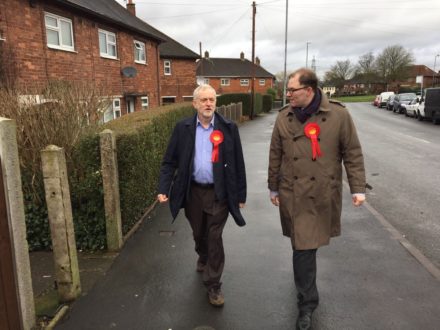
Until last week, the three letters that most animated members of the Labour Party were NHS. But these have been replaced – temporarily – by three new letters: E, E and A.
This week, Labour MPs will be given the chance to vote on dozens of amendments to the European Union (Withdrawal) Bill. Most of the amendments are sensible, positive and offer practical solutions to the problems with the legislation; claw back some of the powers grabbed by ministers and put protections in place to minimise the damage that is being done by a government bereft of ideas and in full-on destruction mode.
One amendment, however, does not fit that description. Lord Alli successfully moved an amendment to the bill that would commit the UK to ‘continue to participate in the European Economic Area’. The amendment from the House of Lords has excited many party members and many of my PLP colleagues. “Finally, a chance to fight back against the Brexit that no one wants,” I have been told repeatedly by #FBPE members and their well-organised and professionally-orchestrated social media and email campaign.
Some colleagues in Parliament have made the claim that “if only we were whipped to vote for the amendment, we could defeat the government”. While it is mathematically accurate that the combined weight of the whole Parliamentary Labour Party, plus the smaller third parties and the dozen Tory MPs who have tabled a similar amendment to the Trade Bill would constitute a quiet majority, there is one glaring problem. While notionally numerically accurate, it simply fails to acknowledge the views of too many of my colleagues.
Outside of the usual half-dozen committed Brexiteers on the Labour benches, there exists a growing number of MPs who recognise the realities in their communities. Who know that the reasons for which people voted Leave will not be answered by the EEA and consequently understand the electoral cost of breaking the trust of our voters in our coalfield communities, our towns and our small cities. These MPs will no more be whipped to vote for an EEA amendment than those advocating it as our salvation would be whipped to vote against.
Aside from the obvious problems with the European Economic Area, which ultimately would mean the UK would be required to take all of the rules and regulations produced by the EU with little to no ability to influence them and then pay a hefty bill for that privilege, participation in the EEA requires the acceptance of the four freedoms. That would include the freedom of movement, which – like it or not – was a huge factor for some voters when making up their minds in the referendum.
Signing up to the EEA would leave us as a rule-taker, not a rule-maker, and those would be rules created in the best interest of the remaining 27 members of the EU, not necessarily in the interests of the UK. But those aren’t the only problems with continuing to participate in the EEA once we have left the EU.
Most Labour MPs are in seats that voted Leave. My constituents could rightly ask whether we have really left the EU if we are still subject to all the rules, regulations and obligations that come from membership. What message are we, as a Labour Party, sending to voters in these seats if we simply turn away from the spirit of the referendum result? What hope can we have to win back those traditional seats we need to win in order to form the next government if we tell the voters in those communities that we know better than they do?
Those seats may not be won or lost on the EEA alone but how we approach this issue will be symptomatic of how we present ourselves to traditional communities who think we have turned our backs on them. They stopped trusting us because they stopped believing we listened to them. Voting for the EEA amendment this week would just prove that they were right all along.
The impact of leaving the EU will be tough, but the question of whether we are leaving or not has already been answered. It may seem like a quick fix to simply stay a member of the economic club of the EU in order to temper the worst parts of Brexit but, for me, the best way to deal with the fallout of Brexit is to ensure Labour wins the next election.
Gareth Snell is MP for Stoke-on-Trent Central.




More from LabourList
‘Tackling poverty should be the legacy of Keir Starmer’s government’
‘The High Court judgment brings more uncertainty for the trans community’
‘There are good and bad businesses. Labour needs to be able to explain the difference’